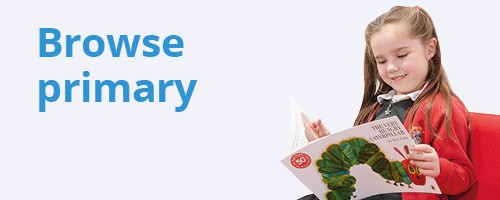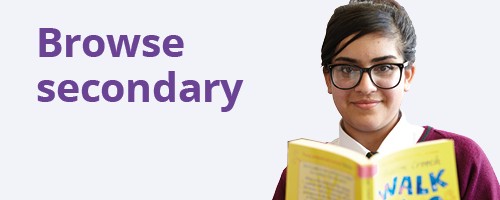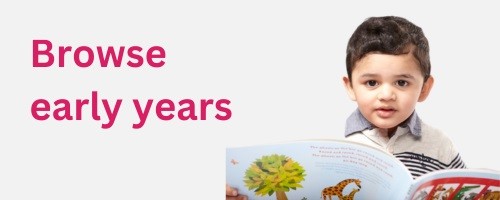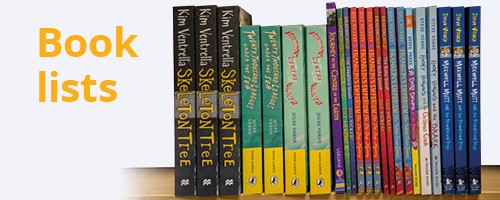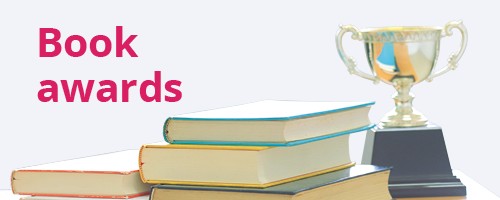Schools please note: due to the summer holidays we will automatically hold all school books and furniture orders due between Wednesday 16 July and Monday 1 September 2025. Delivery will resume from Tuesday 2 September 2025. If your school remains open for deliveries during the summer and you would like to receive your order during this time, please get in touch in advance by calling 0121 666 6646 or emailing hello@peters.co.uk.
For help, advice and telephone ordering call our team on 0121 666 6646
Are you sure you wish to delete this basket?()
This action cannot be undone.
Sorry, something went wrong
Please report the problem here.
Q&A with Stella Hine, Carnegie Greenaway Judge

March 4th 2022
Q: What inspired you to become a judge for the Carnegie and Kate Greenaway Awards?
A: Circumstances, including a supportive colleague and her spouse, conspired to lead me to becoming a CKG judge in 2020. Having qualified as a librarian in the 1980s, I moved to Nigeria and, again due to circumstances, I ended up having a wonderful time teaching there. On my return to the UK in 2000, I had to choose between continuing in teaching or picking up my library career and I chose to enter full-time teaching. I left the classroom in 2017 after many mostly happy years and then found my dream job as a college librarian, the job that finally drew together all my experiences, gifts and passions. I never imagined that I would have the opportunity to become a CKG judge at this stage in my career so when it presented itself, I seized it.
Q: The Carnegie and Kate Greenaway Awards are unique in that they are the only awards to be solely judged by children’s librarians. We all know that librarians are crucial – what is it that makes the children’s librarian role so important?
A: The role of the children’s librarian is to create and nurture a passion for reading, spreading awareness of the unlimited potential of all types of books to enrich and enhance lives. Reading expands horizons and inspires the dreaming of big dreams, developing literacy in the widest sense. Children’s librarians are uniquely placed to relate directly to young people and to support teachers and parents/carers in their fundamental roles of educating the younger generation at their most formative stages. Part of the role may include match-making - bringing a book and a child together at just the right time, creating awareness of the lives and experiences of others, or mirroring the child’s own life and experiences. Children’s librarians offer bridges forming pathways between the reader at one end and the author/illustrator/publisher at the other, continually bridging the gap between the readers’ needs and available or potential texts, valuing diversity and inclusion, cultivating empathy and understanding and, most of all, encouraging conversation.
Q: Tell us a bit more about the work you do as librarian at Brinsbury College – how do you go about inspiring students’ reading? What do you enjoy most about your role?
A: My work is founded on positive relationships and my key word is respect. I aim to get to know the students and their needs. I learn from the young people I serve - their openness, vulnerability and quirkiness never cease to amaze me and I feel privileged to be part of their lives. Our college mission is to change lives through learning and our library is at the heart of that journey. We support and equip staff and students to follow their dreams and ambitions. We offer academic support - books and journals with both online and hard copies, quiet study spaces, study skills, referencing, online searching etc. We collaborate closely with curriculum staff to deliver information and study skills sessions, curate our collections and maintain reading lists. However, we are also interested in the whole life of the student – finding out times of the next bus (vital in a rural location like ours), providing a needle and thread for a student to repair their clothing or connecting a new phone to the wifi. We have hosted poetry events with competitions judged by a local poet, we run regular quizzes and competitions throughout the year which students look forward to, we participate in the Reading Ahead challenge annually, we create interactive displays, display student work and offer work experience. We try to create a warm, welcoming and safe atmosphere where students can thrive. Reading for pleasure is fundamental to our goals and we are committed to modelling a positive reading culture.
Q: How do you think your previous career experience (working as a librarian at London University and London School of Economics, and teaching in Nigeria) has impacted and influenced the work you do now?
A: Previous career and personal experiences have given me a rich understanding of people of many backgrounds and cultures and I feel comfortable in most settings (well, I’m quite shy but I can put on a reasonable act of confidence). Having come from humble beginnings, growing up on a council estate, with free school meals and a full maintenance grant for University, reading and education have led me to places I could only ever have dreamed of. I have worked with top academics at London University, alongside government officials, diplomats, high-flying professionals and entrepreneurs in Nigeria as well as with the most impoverished and vulnerable in society, working in a local primary school with a high intake of disadvantaged pupils for 13 years. I can relate to struggling students who lack self-esteem and basic skills. We often say that those who present with challenging behaviour are the ones who need us most urgently. A person needs to feel accepted and have a sense of belonging to be able to engage well with education, work and life in general. I can engage with pupils and students who are ready to learn, having a wide range of teaching experience from Early Years to Year 11. Because of my academic experience, I can also relate to those in higher education. I love the rich variety of my job - visiting our on-site nursery to share stories and when the nursery children visit the library, noting how everybody pays attention or walking a muddy mile to the farm to deliver online resource sessions. I am constantly overwhelmed and surprised by people and I love to find out what makes them tick. I see more commonality between people than difference yet I love to celebrate what makes a person unique. Kindness trumps everything in my opinion. All these experiences influence the way I work now.
Q: How are you finding the judging process for 2022? How do you fit in all the reading?
I feel more relaxed in my second year of judging. My first year was wholly online due to Covid-19. I still cannot believe I haven’t met the 2021 team in person – we became very close online and remain in close contact. Living through the BLM movement and events of 2020 had a profound emotional impact on me. I feel privileged to be living through this era with all the new possibilities that it has brought. My second year as judge is slightly different as there was initially the possibility of in-person judging and we have been back at work in person. We may yet meet in person as the process continues. My family have come to understand that regular life is an interruption to my main business of reading. However, I may not be able to sustain that after the judging is over. I am thinking of how best to ringfence those hours for the future. I have a long reading list already plus many projects and activities that will easily fill the hours. It remains to convince my family that I am justified in this.
Q: What will you be looking out for when reading the nominated books? What makes you fall in love with a book?
A: When reading the nominated books, I look for a book that stays with me, in my thoughts, and that I want to re-read immediately. A good book looks and feels right (OK that may be highly subjective). It’s one that I want to finish but also I don’t want it to end, a book with delicious words, phrases and concepts that I like to replay in my mind. Oh, some books are just so tasty and moreish. Having said that, I have huge admiration for each of the books that is nominated as I know that at least one professional colleague will have been sparked by it in some way. So, each and every book is worth the reading. Comprehensive judging criteria (now firmly embedded in my mind) and a robust, lengthy moderated process inform our discussions and enable us to come to a joint final decision that we can all be proud of.
Q: What’s your favourite children’s book? (Or is it too difficult to choose just one?)
My favourite children’s book … I always struggle with this one as so many books hold particular memories for me. I won’t name the first book that always springs to my mind as it is not a positive memory at all. Any Beatrix Potter book gets me every time. My 30-year-old daughter and I still recite extracts to each other. I also enjoyed poetry by Emily Dickinson, Christina Rossetti, Grace Nichols and John Agard. As a child, I was a regular visitor at my local library (Lewes) reading in the library and staggering home with the maximum number of books allowed. I probably read everything Enid Blyton ever wrote and specially loved Mallory Towers and the Chalet School series. I read widely and indiscriminately. The Children’s Britannica, bought from a door-to-door salesman in instalments, a set of Dickens’ novels, science and nature encyclopaedias were firm favourites too. My favourite of all time might be Skellig, The Lion, the Witch and the Wardrobe, Watership Down, A Wrinkle in Time or Things Fall Apart …. no, I certainly can’t choose just one!
Find out more about the Carnegie and Kate Greenaway Awards and Shadowing Scheme on their website.

